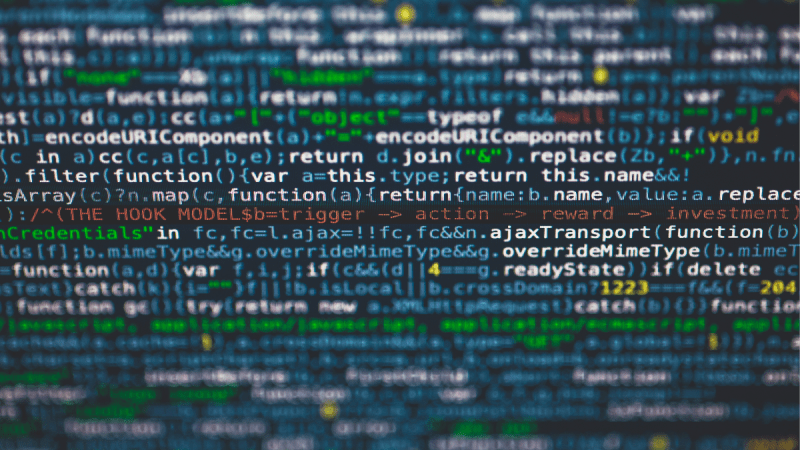Artificial Intelligence in Shaping Modern Warfare: The Future of Conflicts

Artificial Intelligence in Shaping Modern Warfare: The Future of Conflicts
Modern warfare has vastly changed from the old battlefields. Nowadays, wars are no longer solely fought with soldiers, tanks, and airplanes but also with technology. One of the fastest-evolving ways that nations prepare for, engage in, and respond to conflicts involves the use of Artificial Intelligence in modern warfare. AI can make war faster, wiser, and more effective, but it does raise important ethical concerns. In the article below, we’ve described how AI works in modern warfare, its benefits, and challenges.
Understanding Modern Warfare
Modern warfare refers to methods, strategies, and technologies adopted in modern armed conflicts. Whereas wars of the past were merely fought on physical grounds, nowadays, this has blown up into digital and cyber warfare. It includes advanced technologies, including armed drones, cyber-attacks, satellite surveillance, and now-the most recent-artificial intelligence. AI is changing war with new ways to collect and analyze data, automate decision-making, and control weapons. From smart drones to autonomous submarines, AI is improving the operation of military forces by enhancing effectiveness, precision, and reducing risks to human soldiers. Yet, with this rise of AI in warfare comes great concerns regarding security, accountability, and ethics.
How AI is Being Used in Modern Warfare
AI is being integrated into various aspects of warfare, including intelligence gathering, decision-making, logistics, and combat. We are going to take a closer look at some of the key areas in which AI is really beginning to bite.
AI for Surveillance and Reconnaissance
The practice of surveillance is perhaps one of the core strands of work undertaken within the military, and with AI, it is becoming even more effective than it has ever been. With AI-driven surveillance systems, militaries are able to process large volumes of data emanating from satellites, drones, and other sensors. But this could also be analyzed in real time by various AI algorithms, which could identify potential threats and give some fruitful insights for commanders. For instance, AI might be employed to discern movements of enemies, track vehicles, and even recognize faces from a distance. With the automation of the above-mentioned tasks, AI can enable military forces to react with higher speeds and efficiencies against an emergent threat.
AI in Drones and Autonomous Vehicles
Drones, or unmanned aerial vehicles, are already a common feature in modern warfare. The latest addition to their efficiency is artificial intelligence. AI makes drones even more potent: autonomous drones are those capable of flying themselves, navigating, and making decisions lacking interference from humans. This would enable them to do such jobs as reconnaissance, airstrikes, or resupplying soldiers in the field. Along with drones, the ground vehicles, submarines, and ships are also being equipped with AI. The autonomous military vehicles can patrol borders, transport equipment as well as take part in combat missions. Due to the lesser requirement for a human soldier in a dangerous situation, AI vehicles help reduce casualties.
AI in Cyber Warfare
The concept of cyber warfare refers to the attacks aimed at a nation’s computer systems, networks, and infrastructures. AI is now playing a critical role in both defending against and launching cyberattacks. With AI, militaries can automate the detection and response of cyber threats. AI algorithms can study network traffic, discover unusual patterns, and take action on potential attacks more quickly than human analysts. AI is also being used to conduct offensive cyberoperations. AI-empowered malware adapts to security measures and exploits a weakness in enemy systems’ defenses. These AI-driven attacks can disable communication networks, power grids, and other critical systems that an enemy would require in waging war-nearly crippling them.
AI in Decision-Making and Strategy
The most crucial aspect of AI applications in the modern concept of war pertains to decision-making and strategy. Given that AI systems can process large volumes of information at much higher speeds than human beings, they are able to provide commanders with insights that would billet them toward making better decisions. As for instance, it has been able to run various battle scenarios and predict the outcome in terms of the best strategic choices. This helps the military leaders to select the best option in a complex dynamic environment. AI can also be used in support functions like supply chain management, planning troop movements and attack coordination. Besides battlefield strategy, AI will help in large-scale military planning. For instance, it can analyze geopolitical data to determine the possibility of conflict across regions and help governments and military leaders in the building and preparation against future threats.
AI and Autonomous Weapons Systems
Perhaps one of the most contentious areas in which AI is being applied in modern warfare is in developing autonomous weapons systems, otherwise known as “killer robots.” These are weapons that are capable of independently choosing targets and firing on them. But while autonomous weapons hold the promise of reducing human casualties by taking soldiers out of direct combat, they also raise grave ethical concerns. Critics argue that AI-powered weapons could make decisions leading to unintended civilian casualties or escalating conflicts beyond human control. Concerns center on accountability: if an autonomous weapon makes a mistake, who is responsible? These ethical questions remain debated; the overwhelming majority of countries call for international regulations on the use of AI in weapons.
Advantages of AI in Modern Warfare
AI heralds a few key advantages in modern warfare:
Speed and Efficiency: AI processes large volumes of data in real time to make quick decisions and respond to threats with efficacy by military forces.
Reduced Risk to Human Soldiers: Drones, ground vehicles, and other autonomous systems can be used to carry out dangerous missions, hence not putting human lives at risk.
Improved Accuracy: AI can analyze data more accurately than manual analysis. This reduces the risk of any error in military operations.
Cost Savings: AI can reduce costs arising from military operations by automating such tasks as surveillance, logistics, and even cyber defense.
Predictive Analysis: AI lets the military leaders anticipate any future threat and attack in advance, thereby giving them a strategic edge over their enemies.
Challenges and Concerns
Although AI has many advantages, its incorporation into modern warfare has also brought a number of challenges and concerns which include but are not limited to the following:
Ethical Concerns: The use of autonomous weapons ignites several ethical questions regarding accountability, civilian casualties, and possible decisions of AI which might lead to unintended consequences.
Security risks: These systems can easily be hacked or suffer from some sort of cyberattack. Acquisition of such a system by the enemy could result in its use against one’s own forces.
Lack of Human Judgment: AI does not possess contextual understanding and moral judgment. Complex situations may still require human intuition and judgment to prevent undesired harm.
Escalation of Conflicts: The rapid efficiency of AI-powered systems may eventually contribute to situations that get overwhelmingly out of hand, making de-escalation or avoidance of war quite challenging.
Global Arms Race: In developing AI in warfare, there is an ongoing arms race where different countries compete to develop the most advanced AI technologies. This can only heighten tensions further and lead to more instability on the world stage.
The Future of AI in Warfare
As AI grows, so does its application within modern warfare. The heavy investment by nations in the research and development of AI has made it grow more sophisticated with each passing year. Within a few years, we might see fully autonomous combat units, advanced cyber warfare, and AI-powered decisions able to process the course of an entire military campaign. But the future of AI in warfare will also depend on how governments and international organizations address the ethical and security concerns linked to the technology. An increasing call exists for international agreements and regulations that will manage and control the use of AI in warfare so it can ensure it employs responsibly.
Conclusion
AI is changing modern warfare by making military operations faster, more efficient, and more precise. From autonomous drones to AI-powered cyber defenses, the technology is creating new tools for both defense and offense. But the deployment of AI in warfare brings vital ethical and security questions into play, as well. With AI continuing to play an increasingly central role in conflicts, the call for nations to come together on the establishment of rules and safeguards that guarantee the responsible application of the technology has never been more paramount. While AI might shape the future of war, it is up to the humans to make sure this powerful technology is put to work in such a way as to foster peace and security.






